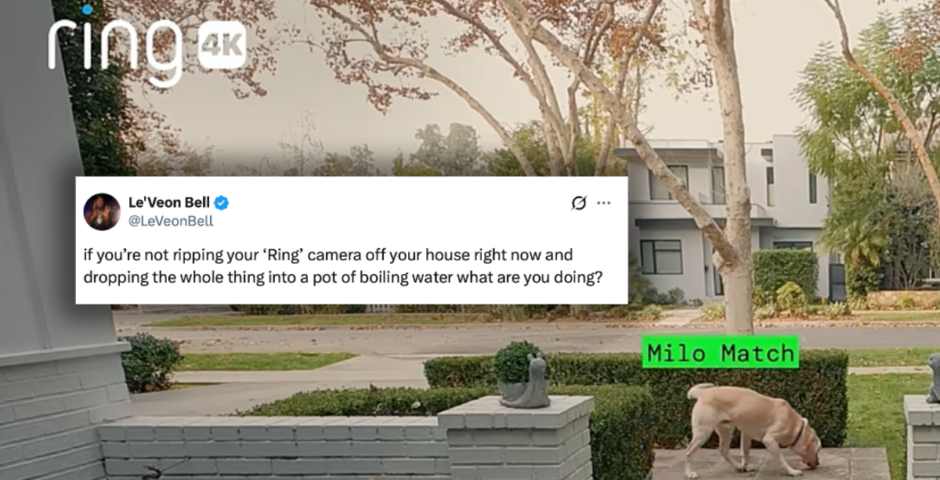
Overworked and underpaid: Why grads are ditching jobs at the Big Four
‘I was just crying all the time’
In final year of university, the race is on to get a job. Careers fairs across campuses are rammed with panicked students searching for their calling and, amongst the leaflets, free pens and tote bags, one corporate quartet has serious clout: The Big Four. KPMG, EY, Deloitte, PwC— elite grad schemes are the ultimate goal. Often, before you even know what these companies do (accounting), you know you want to pass the online tests to work there.
Glistening sky scrapers, high-powered clients, huge pay packets and after work drinks with other young (hot) professionals are the whispered hopes and dreams of applicants from Russell Groups across the country. But could long nights, low pay, and rushed firings be the more likely reality? The Tab spoke to Big Four grads to find out:
‘You’re all in the torture together’
“When I got the job I was buzzing.” says James*, who worked in audit at the Big Four after graduating from the University of Exeter. Before starting office work, he was whisked away to live in a hotel and study in college with other new grads to get a “base level of accounting knowledge” to do the job. But here, amongst the fun and camaraderie, the pressure started.
After between two and three weeks of college, rigorous testing begins. “You can be put through up to three exams at once,” says James. “They’re challenging. It’s one of the biggest drop off points. There’s a big group of people who fail. Then they have to do the resit two weeks after their first exam. And if they fail the resit, they have to leave.” Essentially, two strikes and you’re out, with very occasional extenuating circumstances.
Most Read
Although studies are given a head start on these Big Four study leave, Freshers’ Week type camps, James’ scheme was three years long, with candidates expected to complete 15 tests within that time. So, exams don’t stop when you reach the office. You’re expected to revise, work and pass all at once— and the online working hours reflect that.
During busy season (January, February, March), James was working more than 12 hours per day. “It was realistically 9am-11pm,” he says. “They’re nice enough to give you a paid Uber home. But then you go straight to bed, wake up again at 6am and get the tube all over again. Plus you work, maybe five hours, on Saturdays as well.”
‘It doesn’t get easier. Get out now’
According to UK law, maximum working hours are 48 per week. But you can sign your life away – and many Big Four grads do. “You do the hours because everybody else is doing it, even though you could just stop. You can’t look your team and your friends in the eyes and walk out the door at five,” he adds. “You’re all in the torture together. Everybody’s shattered Thursday and Friday— but you still go for a beer because it’s been a shit week.”
As grad schemes go, the Big Four is generous on paper. James was paid £28.5k in year one, £30.5k in year two and £34.5k by his final year. But broken down into an hourly rate, he was earning below minimum wage for significant chunks of the year. “The idea is that when you qualify your salary jumps up to £45-50k,” he says. “But, to be honest, once you pass all your exams you can get paid more somewhere else.”
James claims, even after exams, things don’t get better. “The grad scheme and training can be good if you can survive it,” he says. “But your workload just gets heavier and you get more responsibilities afterwards. If I had to give anybody advice, it would be: Get out.”
‘Wave goodbye to your evenings and weekends’
Zara* joined a management consulting grad scheme at the Big Four after training as a pharmacist at The University of Manchester and subsequently craving a career change. But, despite loving consulting and still working in the industry today, she quit the Big Four scheme in her final year before she qualified. “I was like ‘I’m not going to continue working at this place, for this many horrible hours, and this terrible pay,'” she remembers.
“I’d worked really hard to get on the scheme [online tests, three rounds of interviews, a final presentation to a partner],” she adds. “I had all these big expectations of the work I was going to be doing and all the clients I was going to work with. But, with your exams, you basically wave goodbye to your evenings and weekends. If you’re efficient, it’s not going to take over your life— but it definitely made some people pretty miserable. When you’re not sleeping, you’re revising, and then your actual workload depends on your project.”
Terrifyingly, on some Big Four graduate schemes, candidates are constantly scored on utilisation. “If you’re 100 per cent utilised, that’s the gold standard,” says Zara. “It basically means you’re working on client projects all the time. Some nights you might have to work until midnight… You never have a routine. You emulate the behaviour of your partner. So, if you have a really intense partner, you’re probably going to have a very intense team.”
‘One office smelt like sewers’
On the other hand, if you don’t get picked for projects because partners don’t believe in you, you’re sat waiting “on the bench” and your hours are average: 9am-5pm. “That’s when people start asking questions,” warns Zara. “It’s a double edged sword. If you’re not getting picked for projects and have a low utilisation, it’ll come up in your end of year review.”
And despite all Big Four companies boasting shiny officers across the city, when Zara was on project, she spent much of her time in crumbling client buildings instead. “There was one in Waterloo that smelt like sewers and had really shit coffee” she says. “It’s not what you sign up for. You go for these interviews in all these massive high rise towers. But the reality of consulting is so different. You can be on the train for two hours to the end of the metropolitan line, commuting out to an office in Uxbridge. It’s not glamorous.”
For the hours she worked, Zara calls her £32k training salary “shit”. “It’s three years of getting paid a terrible wage and working really hard and doing exams at the same time,” she summarises. “[The Big Four] can springboard you onto bigger things. But it boils down to whether you can hack it and what you’re willing to sacrifice.”
‘I had managers calling me at 3AM’
University of Nottingham graduate Tara* secured her space on a Big Four scheme in banking and capital markets after completing a summer internship with the company during her second year. “Everyone idolises the Big Four,” she says. “[That reputation] makes you feel really safe and positive. I really enjoyed my internship, so, I was excited to start.”
Tara completed six certificate levels within her first six months on the job and was allowed study leave for all of them, unlike at other Big Four companies. But expectations were high, with your future uncertain if you failed. “Exams were so hit or miss,” she says. “There were software crashes, people were being overworked on their teams or had deadlines at the same time as tests— you can fail an exam because of something out of your control.”
Like James, Tara’s busy season was from January to March when clients would be working towards the end of their financial year. However, not all clients would have year ends at the same time— meaning you could wind up with months of “busy period” days, working over the legal number of hours, for months and months straight.
“Generally, you shouldn’t have a year end one after the other,” says Tara. “But the company went under a hiring freeze and I wound up with five or six clients’ year ends back to back. I was working excessively long hours and work life balance just went out of the window. I’d get into work at 8AM and leave at 4AM,” she says.
“I’ve never taken a nap in the office,” Tara adds, eschewing the stereotype seen on Industry of new grads sleeping in toilet cubicles. “You’re literally working the whole of that [20 hour] day. So, it does call into question the quality of the work and how effective we’re being because we’re so tired.”
‘They were taking bets on who’d break up first’
When Tara started her job, she had a boyfriend who she quickly broke up with thanks to her schedule. “During the first week at grad drinks, qualified workers found out who was in a relationship and who wasn’t and started taking bets on who’d break up first,” she admits. “You literally just don’t have time for anyone else.”
Rather than feeling resentful towards people more senior than her, Tara felt sorry for them: “Managers have it the worst because they get the pressure from the senior managers and the partners to get stuff done,” she says. “You feel sympathetic and want to help them out even though you have exams. I’ve literally been in bed before at 3AM and got a call from a manager being like ‘can you get up and come and help me with this thing?!'”
Despite loving her career, Tara’s mental health was dramatically affected by her time at the Big Four. “It’s just depressing,” she says. “I had no intention of ever leaving, unlike most people after they qualify. But you look at the senior managers and the work they’re doing after five years and think ‘this isn’t the life I want to live. I don’t want to be like them.'”
Tara started the grad scheme on £28k per year, which rose to £36.5k in year three and would have shot up to £47k after she qualified. “As an hourly rate, it’s below minimum wage and you do start to question, ‘is this really worth it’?” she says. “I realised that my mental health is no longer worth compromising for a job.”
‘I was just crying all the time’
“The thing is, everyone is working the same amount and to the same level of intensity,” Tara adds of managerial support. “It’s not like someone can take on more work for you when you’re struggling because everyone’s working to the bone,” she continues. “So between the grads, we all knew it was really tough and tried to be each other’s support system.”
When Tara reached her “lowest ever” point during her final project with her company, they offered her two days off to recoup. “I was just crying all the time because mentally I was no longer there,” she says. “And what’s a day or two off of work going to do at that point? The job needs to get done. We’re working against regulatory deadlines— it’ll be in the news if we don’t make it. With that level of pressure, the solution was to hire more people, which they weren’t doing.”
Looking back, Tara wishes she’d questioned the Big Four’s culture sooner. “If your mental health is being compromised or you’re being overworked, don’t be afraid to vocalise how you feel early on,” she warns incoming grads. “It’s just expected of you to just give up every single evening and every single weekend during busy season. That’s the norm. No one questions it, everyone else is doing it, and you become desensitised.”
*Names have been changed
Want to share your experience of working at the Big Four? Reach out to [email protected]
Related articles recommended by this writer:
• These are the unis you need to go to if you want to land a job at a Big Four firm
• If you wanted a grad job in 2023, you should have gone to one of these universities
• Everything recent uni grads wish they had known before starting final year
















